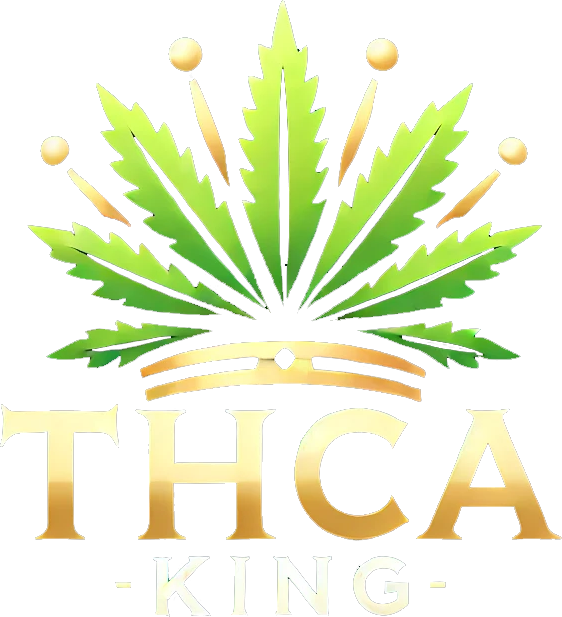
THCA vs. CBD: What is the Difference?
Share
The cannabis plant contains numerous compounds known as cannabinoids, each with unique properties and effects. Two of these cannabinoids, THCA (tetrahydrocannabinolic acid) and CBD (cannabidiol) are particularly noteworthy for their potential therapeutic benefits. Despite originating from the same plant, they differ significantly in their chemical structure, effects, and uses. This detailed blog will explore the differences between THCA and CBD, helping you understand their unique characteristics and benefits.
Understanding THCA
What is THCA?
THCA is the acidic precursor to THC (tetrahydrocannabinol), the psychoactive component in cannabis. In its raw form, cannabis contains THCA, which converts to THC when exposed to heat through a process called decarboxylation. THCA is non-psychoactive, meaning it does not produce the "high" associated with THC.
Potential Benefits of THCA
- Anti-Inflammatory: Research suggests that THCA has anti-inflammatory properties, making it potentially beneficial for conditions like arthritis and other inflammatory diseases.
- Neuroprotective: THCA may offer neuroprotective benefits, potentially helping in the treatment of neurodegenerative diseases such as Alzheimer's and Parkinson's.
- Anti-Emetic: THCA might help reduce nausea and vomiting, making it useful for patients undergoing chemotherapy.
Understanding CBD
What is CBD?
CBD is a well-known cannabinoid that does not produce a psychoactive effect. It is commonly extracted from hemp, a variety of cannabis that contains less than 0.3% THC, making it legal in many regions. You can buy CBD vape juice online very easily from reputable brands.
Potential Benefits of CBD
- Pain Relief: CBD is widely recognized for its analgesic properties. It can help manage chronic pain conditions without the side effects associated with traditional pain medications.
- Anxiety and Depression: CBD is known to have anxiolytic and antidepressant effects, helping to reduce symptoms of anxiety and depression.
- Epilepsy: CBD has been shown to be effective in reducing the frequency and severity of seizures, particularly in rare forms of epilepsy such as Dravet syndrome and Lennox-Gastaut syndrome.
- Anti-Inflammatory: Like THCA, CBD also has anti-inflammatory properties, making it useful for a variety of inflammatory conditions.
Key Differences Between THCA and CBD
Psychoactive Effects
- THCA: Non-psychoactive in its raw form. Converts to THC when heated, which then produces psychoactive effects.
- CBD: Non-psychoactive, does not produce a high, making it suitable for those seeking therapeutic benefits without mind-altering effects.
Legal Status
- THCA: The legal status of THCA is closely tied to THC. In many places, raw cannabis containing THCA is illegal due to its potential to convert to THC.
- CBD: Legal in many regions, especially when derived from hemp containing less than 0.3% THC.
Uses and Applications
- THCA: Typically used in raw forms, such as juicing fresh cannabis leaves or consuming raw cannabis extracts. Beneficial for those looking for the anti-inflammatory and neuroprotective properties without psychoactive effects.
- CBD: Available in various forms, including oils, tinctures, capsules, edibles, and topical creams. Used widely for its therapeutic benefits across a range of conditions, from pain and inflammation to anxiety and epilepsy.
Similarities Between THCA and CBD
Despite their differences, THCA and CBD share some common ground:
- Non-Psychoactive: Both cannabinoids do not produce a high, making them suitable for users seeking therapeutic effects without intoxication.
- Anti-Inflammatory: Both have been shown to possess anti-inflammatory properties, beneficial for conditions like arthritis and other inflammatory diseases.
- Potential Therapeutic Benefits: Both cannabinoids offer a range of potential health benefits, including neuroprotective, anti-emetic, and pain-relieving properties.
Choosing Between THCA and CBD
The choice between THCA and CBD depends on your specific needs and circumstances. Here are some considerations:
- Seeking Non-Psychoactive Relief: If you want the benefits of cannabis without any psychoactive effects, both THCA (in its raw form) and CBD are suitable options.
- Pain Management: CBD is more widely recognized and researched for its pain-relieving properties.
- Inflammatory Conditions: Both THCA and CBD can be beneficial, but the method of consumption may influence your choice (e.g., raw cannabis for THCA vs. CBD oil).
- Legal Concerns: CBD derived from hemp is generally more accessible and legal in many regions compared to THCA, which is tied to the legal status of THC.
Conclusion
THCA and CBD are two distinct cannabinoids with unique properties and potential benefits. While THCA is non-psychoactive in its raw form and converts to THC when heated, CBD remains non-psychoactive regardless of how it is consumed.
offer anti-inflammatory benefits, but CBD is more widely used and researched for a variety of therapeutic applications, including pain relief, anxiety reduction, and epilepsy treatment. Understanding the differences between these cannabinoids can help you make informed decisions about which one might be best suited for your needs.
